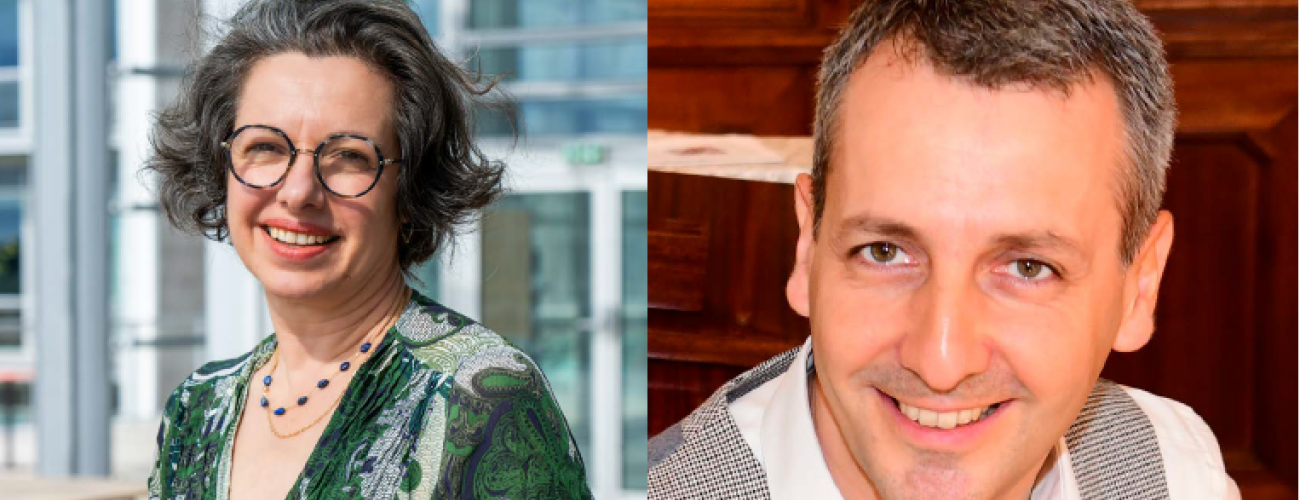
Newsletter 17: The ecological transition: top priority at the ParisTech schools
Interview with Hélène Bluteau, Director of Evaluation and CSR at AgroParisTech, and Emeric Fortin, Head of Master's courses and Sustainable Development at École des Ponts ParisTech, on how the ecological transition is taken into account in ParisTech engineering training.
How have higher education institutions traditionally approached the ecological transition?
EF : There’s a lot of variation from one institution to another. However, by looking at the situation today, we can get an idea of how strategies develop. Usually, the first step is to offer specialized training courses led by academic staff and professionals, looking at the ecological transition through the lens of a particular discipline or topic. The ISIGE (Institut Supérieur d’Ingénierie et de Gestion de l’Environnement) is a good example. It was founded by the École des Mines de Paris in 1992, initially in partnership with AgroParisTech and the École des Ponts ParisTech, and it remains a leading center for integrated approaches to sustainable development. Following this, collective structures emerge, taking a more cross-disciplinary approach and developing frameworks and tools that can be used more widely. An example of this is the R2D2 network (Réseau des Référents Développement Durable) which, under the supervision of the CGE (Conférence des grandes écoles) and France Universités, developed the DD&RS label and a guide on skills and training requirements for those involved in the green transition. And most recently, calls from students and the urgency of the climate crisis have driven institutions to step things up and integrate the ecological transition into their broader strategies.
What is AgroParisTech’s approach to the ecological transition?
HB : We started by introducing a strategic sustainable development plan (“Green Plan”), and setting up a sustainable development committee. More recently, we’ve scaled up our efforts by developing a CSR policy focusing on eight pillars, which we presented to the school’s Executive Board at the end of 2022. One particularity of our school is that several years ago we introduced a “sustainable development and social responsibility” budget (2% of the school’s training and research contracts).
To implement this policy, we’ve set up:
- A CSR and evaluation board, comprising a director, a sustainable development officer, and one person (on a voluntary civil service placement) who organizes awareness-raising activities;
- A CSR committee including staff from the school, campus representatives, lecturers/researchers, and student ambassadors;
- A steering group consisting of the Dean and Executive Director, the Secretary-General, and external members, including the Vice President for Sustainable Development at the Université Paris-Saclay, the INRAE CSR Officer, and two students. This group rules on decisions and defines the overall strategy.
We’re also in the process of establishing our first greenhouse gas emissions report (BEGES). In the spring, a sustainable development and CSR roadmap setting out our action plans will be submitted to the Governing Board and voted on.
How have you integrated the ecological transition into your engineering programs?
EF : Engineering programs must do two things:
- Provide advanced technical and scientific training to place our graduates at the forefront of design, production, and innovation;
- Help students develop the skills they need in order to adapt to – or lead – the transitions taking place.
There is widespread consensus as to what skills are required. Some of these are already covered on our courses (life cycle analysis, functional analysis, systems analysis, etc.), although new terms are sometimes used (the integration of sobriety in objective functions, for example). Others demand new ways of thinking (greater interdisciplinarity and co-construction, evaluation of strategies in terms of robustness as well as efficiency, and so on). This dual approach to skills has the potential to transform our schools, allowing them to draw on their strengths and particularities while remaining true to their roots. That said, it is important that this approach is supported by concrete training actions and
truly multidisciplinary projects, so that students and staff can master the new approaches required to navigate the major societal transformations that are unfolding.
HB : Our students are keenly aware of environmental issues. It’s a core part of what we do. In their first year, students complete a 20-hour module covering all the major issues and challenges relating to sustainable development. They then
choose an area to specialize in. Some choose to focus on CSR in companies, others on environmental issues in the natural world, and others on territorial development. The school has just embarked on a revamp of its training courses, and will be renewing its accreditation with the CTI (French national committee responsible for accrediting engineering schools) this year. As part of this, we ran a survey in collaboration with our junior enterprise to find out what students think of how the ecological transition is covered on their course.
The results showed that students aren’t fully satisfied. We also worked with students to draw up a list of key skills for agronomists working on environmental issues. We will take on board our students’ recommendations, in particular the need to adopt a more holistic, integrated approach to addressing environmental issues throughout the training program.

